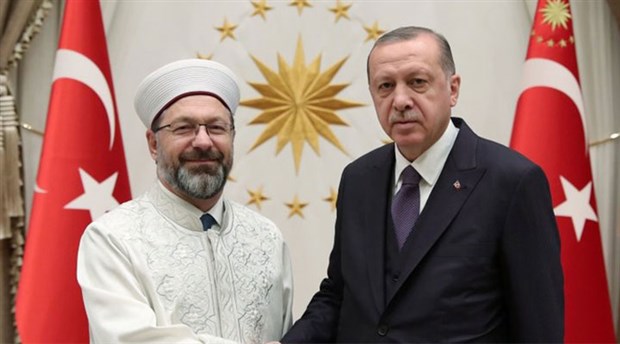Recently-released surveys show that despite extensive government support to Islamization, most people don’t trust Turkey’s Religious Affairs Directorate (Diyanet) and Islamist cults, the daily BirGün reported.
The increasingly anti-secular rhetoric of Diyanet head Ali Erbaş, as well as the directorate’s massive budget, has come under scrutiny in recent years. Murders and sexual assault cases in dormitories and other places belonging to Islamist cults have also pushed people away from these groups.
Both the Diyanet and Islamist cults are promoted under President Recep Tayyip Erdoğan’s ruling Justice and Development Party (AKP).
In the budget proposed by the AKP for 2022, 16.1 billion TL was allocated to the religious entity, more than most ministries. Erbaş has also become central to President Erdoğan’s domestic and international policy, appearing beside the president at home and abroad, and has expanded its realm of influence to include everyday activities, including food consumption and social media use.
Promotion of Diyanet by the government, a “Turkey Monitor” survey conducted by Aksoy research shows, has not achieved its intended results. Some 53.4% of respondents said they looked at the directorate with distrust. This distrust was rampant even among AKP voters – only 55.8% of supporters trusted Diyanet.
The majority of voters also disapproved of Islamist cults. Some 80% of respondents said they wanted all the cults to be closed or put under strict control.
Other opinion polling had similar results. September polling by Yöneylem research showed that 59% percent of voters did not trust Diyanet – 54% did not trust the body “at all,” while another 5% simply did not trust it. Conversely, only 25% of voters said they trusted Diyanet entirely. This number remained low among ruling People’s Alliance voters – more than a quarter of National Movement Party (MHP) voters said they did not trust the directorate at all.
Erbaş’s edging into politics was also condemned by survey respondents. Over 75% of voters said they disapproved of his comments on political affairs.
Polling also showed how Turkish people are content with living in a secular country. When the Turkish Economic Policy Research Foundation (TEPAV) asked voters if they were “satisfied living in a secular country,” 81% responded yes.
Source: Duvar



